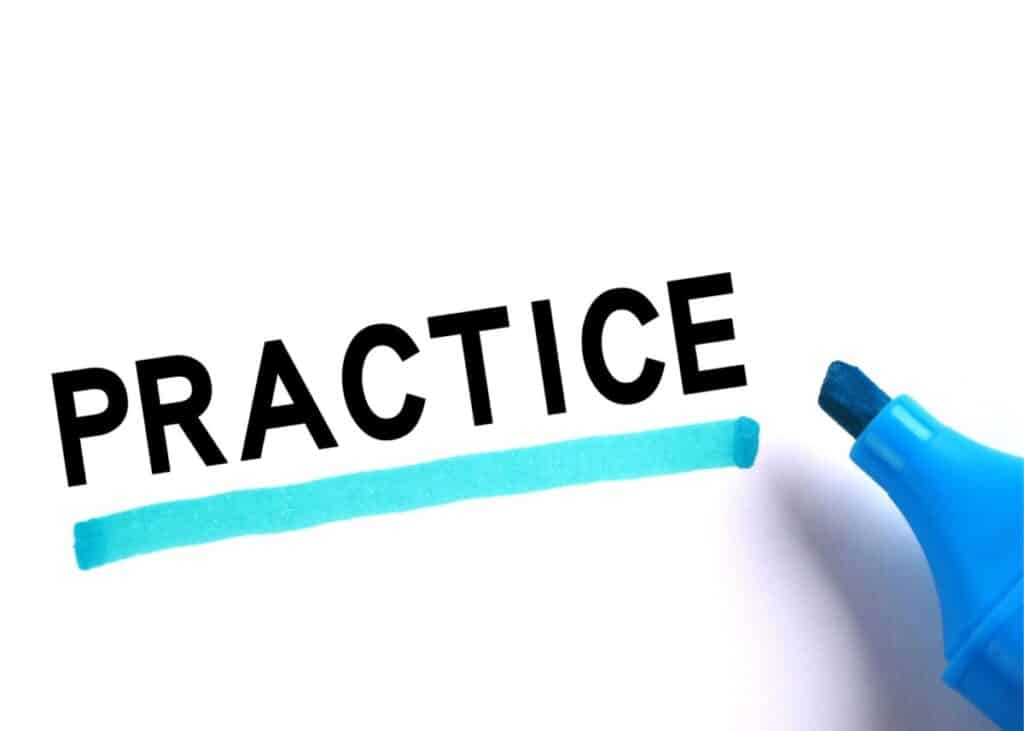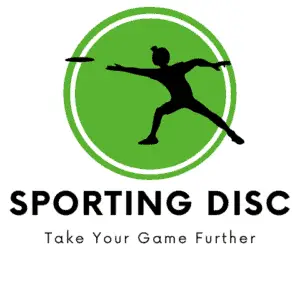Getting good at anything requires practice and a little skill. But, mostly just a lot of practice. I’ve often wondered how often I should be practicing disc golf to get good and progress my game.
There is a fine line to be drawn between quantity and quality, so I’ll talk about how much you should be practicing and what you should focus on during practice.
Table of Contents
Here is How Often You Should Practice Disc Golf
On average, a person should practice disc golf at least 5 to 7 days a week to become a competitive player. Increased time practicing will directly correlate to the increased skill level of a player. The most focus should be given to practicing driving for distance and putting with accuracy.
In this article, I’ll explain why practicing disc golf is important to becoming a competitive player and what you should be practicing for the most gains.

Should I Play Disc Golf Everyday?
If you want to become more than just a casual disc golf player, you’re going to have to practice a lot. This is especially so as a beginner. There are a lot of aspects of disc golf that take time and practice to master.
So, the more you practice, the faster you’ll gain the skills required to be a truly competitive player. The same holds true for many things.
Want to play an instrument? Learn a new language? You have to practice a lot. Disc golf is no different.
When it comes to how much you should be practicing disc golf to get good, the answer is “as much as possible”.
That’s a vague answer, but the amount of free time available will be different for everyone. If you have a lot of extra time you could be practicing every day.
The good thing is that this doesn’t mean you have to be at the course playing rounds every day. You could practice putting in your backyard, or driving into a net in your garage.
Of course, playing rounds at the disc golf course counts as practice too. But, there are ways to practice every day that don’t involve walking 18 holes at the course.
7 Easy Tips to Improve Your Disc Golf Practice
Each time you go out to practice disc golf, you want to have a clear idea of what you’re working on that day and how you’re going to accomplish your goals.
This is important for those people who might not have a lot of time to practice, or can’t practice every day but want to get better.
Three high-quality, laser-focused practice days might be better than five practice days that don’t do much to help move your game forward.
Below are 7 tips to implement into your disc golf practice that can make your practice sessions as meaningful as possible.
1. Narrow Your Focus
The worst thing you can do when practicing is to move from driving to putting, to approach shot, back to driving, etc.
Practicing a ton of different shots and throws for a little bit each won’t help in the long run. You’ll spend less time on each throw without truly putting in the practice to get better.
Decide beforehand one area to practice before your sessions. Focus on what needs the most improvement and start there.
For example, on one day practice only on driving form, or close range putting. Whatever it is, focusing on one thing for a single practice session can help you improve quicker.
2. Establish Clear Goals
For each practice session or practice round, set a few goals for what you want to accomplish or get out of that practice round.
That way you’ll finish practice knowing that you’ve achieved your objective for the day and can build on that for the next practice round.
It could be as simple as hitting a set amount of putts from increasing distances, and not stopping until you’ve achieved the goal you’ve set.
3. Work on Routine
You might find that you easily hit the chains when casually practicing in your backyard or on the course.
But, when it comes to a scored round or a tournament, you find that the added pressure leaves you missing a shot you normally can make.
This is where keeping a routine even during practice can help when the pressure is on. If you’re putting, go through the same routine every time with the same focus you’d have if you were playing in a tournament.
If you’ve practiced the same routine every time for different shots, you’ll have the confidence that you know exactly what to do, and making a throw or a putt won’t be as high pressure.
4. Throw Discs With Different Flight Patterns
During a scored round or a tournament, you never know what type of lie you’ll be playing from on the course. There are always different situations and looks that will need a specific shot.
For better practice, choose a mold with several different flight patterns. You might choose a disc that always fades left, a stable disc, and another disc that tends to turn.
Get comfortable with throwing all of these different types of discs and get used to the way they fly.
By practicing this, no matter what your lie is or what the position is you know you can make the shot because you’ve practiced with a disc that can fly in any of these directions.
5. Record Yourself
It’s hard to critique your form or pinpoint exactly what you might be doing wrong when you’re the one throwing the disc.
If you don’t have a practice partner to look at these things, the next best thing is to record yourself throwing.
You can slow down your video to get a good look at your form and see where there are areas for improvement.
Look at videos of professionals and compare your form to theirs, and then see where improvements can be made.
You might find that you’re doing something that you didn’t even know you were doing.
6. Plan Your Practice Sessions
Along with setting goals for each practice round and focusing on specific areas of your game you’ll want to plan out each day of practice.
To get the most out of each round or session, know exactly what your itinerary is for that round and from there you can set your goals.
For example, on Monday you can work on your X-step and driving for distance. Tuesday, you’re working on approach shots and upshots, Wednesday you can practice putting, and so on.
7. Train For Muscle Memory
Competitive disc golf players are automatic because they have developed muscle memory for every shot and situation that can be recalled as needed.
They have perfected their form and throwing motion through a lot of practice. This means throwing and making the same shot over, over, and over again until it becomes second nature.
How Long Should You Practice Each Day or Session?
Depending on the number of days you are going to spend practicing, you can set up a weekly practice schedule that will focus on one skill per day.
Rather than trying to practice everything during one round or practice session, it’s better to focus on one particular skill to practice per session.
It doesn’t even have to be physical either. If you’re brand new to disc golf, spending 20 minutes studying the rules could play you your advantage next time you’re on the course.
Each practice session should be a minimum of 30 minutes of really focusing on learning or practicing one skill. On days you have more time you can schedule a round at the course or more detailed practice.
What a Beginner Should Work on When Practicing Disc Golf
As a beginner, there is a lot to learn and practice. Creating a daily practice schedule is a good idea.
A pre-set practice routine will guarantee that you’ll get the most out of your practice time and know exactly what you’ll be working on for that day.
There are three main areas to focus on for practice:
- Driving
- Upshot/Approach Shots
- Putting
This list is very short, but there is a lot of practice that can go into these three areas.
Summary | How Often Should I Practice Disc Golf?
The old saying that practice makes perfect is still true for many things, especially getting good at disc golf.
How much you practice disc golf will determine how good you can get. Most professionals and high-level disc golf players practiced a lot, and that’s why they’re good.
If you’re serious about getting better, you should try to practice something in your game every day. Learn the rules, work on footwork, putt in your backyard, play a practice round.
The point is to practice as much as you can to become a competitive disc golf player.
